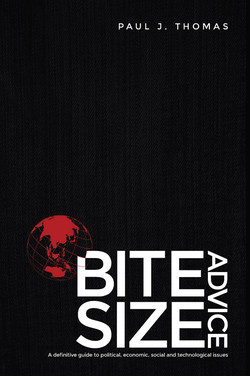Читать книгу Bite Size Advice - Paul J. Thomas - Страница 11
На сайте Литреса книга снята с продажи.
ОглавлениеEconomics is a social science. It is the study of human nature as it applies to money. Economists analyse the behaviour of individual people and firms within an economy (microeconomics) and examine the economic activity of an entire country (macroeconomics). When it comes to money we do not always make rational choices and, as explained in a number of the blog posts in this chapter, this contributed to the Global Financial Crisis. Other topics covered include household debt, personal savings, interest rates, property prices, money management, GDP measurement and money supply.
Financial crisis defies logic
The academic world of economics may fit neatly into mathematical equations, but does it describe the real world? I think we humans are far too emotive for rational economic models to accurately predict our behaviour. The Global Financial Crisis is proof positive of that.
The dislocation in financial markets was caused by irrational lending practices – saddling borrowers with dodgy (subprime) loans they could not afford. As the loans went sour, markets overreacted and then fear and panic set in. Investor confidence plummeted and everyone rushed to the (stock market) exit door.
The human species was convinced it faced financial Armageddon and this supposedly intelligent herd animal behaved like one of Pavlov’s dogs – the market rings the bell and hysteria starts. The great panic was fuelled by apocalyptic reporting from the media which whipped us into a frenzy.
The white knuckle ride has been made even more exciting by market rumours. Nothing like wagging tongues to propel gloom and doom! But if we had acted more rationally, could we have avoided or mitigated the financial system death spiral?
Conditions in financial and equity markets remain jittery. When the dust eventually settles on this damaging saga, teachers of media and political studies will try to make sense of what happened. Hopefully, economists will learn that markets are not populated by rational decision makers.
They might also learn that the really big events in world history, as outlined in the bestselling book, The Black Swan:The Impact of the Highly Improbable, are rare and unpredictable. The author argues that economists live in a fantasy world where they believe the future can be controlled by sophisticated mathematical models.
Posting Date: 29 September 2008
Who caused the GFC?
When something goes wrong, humans need a scapegoat. I know that it is perverse, but we feel better when we blame someone else for our woes. Finger pointing takes the focus off our own behaviour and turns the heat on the “real” culprits. Plus, it feels good to play the innocent victim and exclaim: ‘It’s not my fault!’
The good news is there’s plenty of blame to go around when it comes to the credit crisis. The responsibility for the mounting contagion does not reside with any particular group. No one can claim a monopoly on greed and stupidity. Therefore, many in the populace and media are demonizing everyone and anyone.
Chief among the villains are the fat cat CEOs who pocketed huge pay packets while presiding over lax lending. Others blame US regulators for turning a blind eye to an unsustainable mortgage market. Not to be forgotten are the financial whiz-kids who invented the newfangled securities that turned toxic.
But what about us? Do we need to temper our righteous indignation in the knowledge that, as a society, we have become credit junkies? In a recent blog post, I argued that we are living beyond our means. For many, unsustainable expenditure has become the drug of choice.
